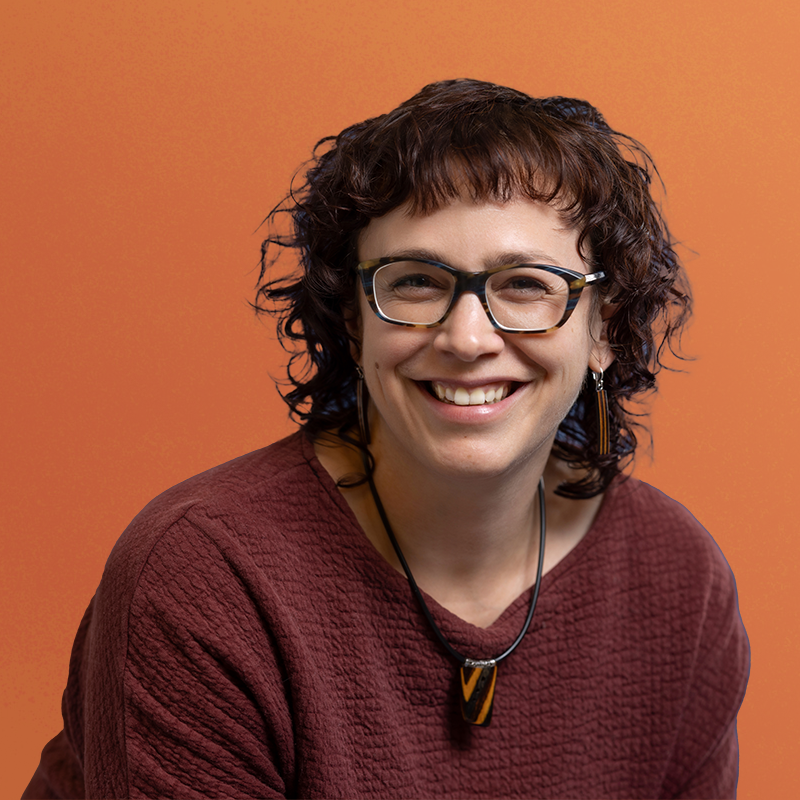- Overview
The series “Overview” highlights research in all its forms and takes an informed look at current events.

September 30 is the National Day for Truth and Reconciliation. To mark the occasion, we met with Professor Marie-Ève Drouin-Gagné to discuss the importance of decolonizing academic institutions and educational settings, in particular by giving Indigenous pedagogies and higher education their rightful place.
A member of the INRS-UQAT Joint Research Unit in Indigenous Studies, Professor Drouin-Gagné’s research is devoted to matters regarding decolonizing research, academic institutions, and urban spaces.
How important is the National Day for Truth and Reconciliation for research institutions? What role do universities play in reconciliation in general?

First of all, I think we need to define truth and reconciliation. In international law, truth and reconciliation commissions (TRCs) are part of a transitional justice approach, generally as part of the shift from authoritarian regimes where human rights have been violated to democratic regimes and respect for human rights. That transition involves constitutional changes or changes to socio-political and legal structures.
In Canada, the TRC’s aim was to shed light on the violence inflicted on Indigenous peoples, specifically in the residential school system. But beyond acknowledging that residential schools constituted a violation of human rights, what kind of transition are we aiming for through the truth and reconciliation process in Canada? Some authors point out that decolonizing relations with Indigenous peoples needs to be part of the process. The TRC defines it as establishing and maintaining relationships of respect, but that is open to interpretation.
In my opinion, we need to remember that this transition involves a change in the distribution and relationships of power to reconcile Indigenous and Canadian legal, political, social, and cultural systems and put them on an equal footing, at the very least.
And to achieve these changes, all of our societies’ structures need to be reconsidered—including knowledge and education, which are the core of our universities. Looking at residential schools, we can see that education was a fundamental tool to “civilize” and “Christianize” Indigenous peoples. Those goals were built on racist notions of European and Western superiority. All this is also based on a hierarchy of cultural, social, political, and legal knowledge: the idea that this knowledge (first European, then Canadian), then the systems supported by this knowledge, are superior to Indigenous knowledge and systems, which justifies appropriating their lands and imposing our sovereignty.
Several authors who have examined the relationship between modernity and coloniality have shown how this hierarchy continues to be reflected in the idea of modernity and the concepts that underpin it, like progress and science. These authors also show that knowledge plays a fundamental role in maintaining these hierarchies and relationships of power.
Education, as an institution for the creation and sharing of knowledge, is central to continuing these hierarchies. This is why universities have a fundamental role to play in the processes of truth and reconciliation, and, more broadly, decolonization. Honouring the National Day for Truth and Reconciliation is therefore important for universities, but it is not enough if we don’t further examine our role in maintaining or transforming relations between the Canadian state and Indigenous peoples.
You are currently collaborating with the Université du Québec en Abitibi-Témiscamingue’s (UQAT) Mamawi Mikimodan Service on the university’s indigenization and decolonization efforts. Could you tell us more about this initiative, its objectives and the importance of collaborative approach?
This research, funded by the Fonds de recherche du Québec – Société et culture, aims to develop a new understanding of the processes of reconciliation, decolonization, and Indigenization of Quebec universities. The goal is to identify a model for Quebec in particular.
Since the Canadian TRC’s call to action for the establishment of an “education for reconciliation” system, many universities have embarked on so-called “Indigenization” processes to make more space for Indigenous people, their knowledge, and their pedagogies, with the goal of making higher education more equitable and accessible. The idea is gaining popularity, but it has yet to be defined. This is especially evident when it comes to its application, which varies widely from one university to the next.
Since it was founded in 1983, UQAT has been a Quebec pioneer in the development of relations with Indigenous communities. This has led to a number of institutional transformations: services for Indigenous students, programs of study in collaboration with Indigenous communities, Indigenous presence on administrative bodies, etc. What’s more, in 2022, UQAT set up the Mamawi Mikimodan Service (meaning “working together” in Anicinabemowin), or MMS, which coordinates initiatives related to Indigenous communities and partners.
The MMS has taken steps at all levels of the university, building on the principle of territorial recognition, which was co-created within a joint (Indigenous and non-Indigenous) committee that includes several Indigenous elders as members. The MMS, and in particular Janet Mark, Strategic Advisor on Reconciliation and Indigenous Education at UQAT, have expressed a desire for this process to be documented.
By conducting collaborative research with members of the MMS and mapping the model of Indigenization in which this department at UQAT participates—its history, associated actions, practices, and principles, and its implications for the university community and its Indigenous partners—we hope to help advance knowledge on the processes of decolonization and Indigenization of education, and more specifically of Quebec academia. This will be a concrete contribution that can inform and guide these processes within UQAT itself, as well as at other universities.
Your work focuses on Indigenous models of education and land-based pedagogy. How can this research contribute to reconciliation?
For many years now, we have been noticing blind spots in our education systems when it comes to Indigenous peoples and their knowledge, experiences, and realities. Indigenous intellectuals have conceptualized these blind spots in different ways. For example, Marie Battiste, who is Mi’kmaw, talks about the cognitive imperialism of our institutions, or the fact that curricula are standardized within a national vision that excludes Indigenous people. Meanwhile, Rauna Kuokkanen, who is Sámi, uses the term “epistemic ignorance” to describe the individual and institutional mechanisms in universities that exclude and ignore Indigenous knowledge in curricula, denying its contributions and influences, due to lack of interest in or understanding of Indigenous epistemologies. Both call for Indigenous people, peoples, and knowledge to be taken into account at all levels of our universities. So, it is often in response to these blind spots that we talk about Indigenizing universities, which represents a fundamental step in reconciliation processes.
For me, this means connecting with and creating spaces for Indigenous knowledge, ontologies and epistemologies, research methodologies, and pedagogies. I think we can draw inspiration from what Indigenous postsecondary institutions and programs have been developing for over 50 years now. These programs and institutions are supported by a variety of Indigenous pedagogies, including land-based pedagogy, which involves learning by engaging with and on the land physically, socially, intellectually, philosophically, and spiritually. In this model, the land forms the basis of Indigenous knowledge and traditions, becoming the curriculum, text, and teacher. These pedagogies aim to reintroduce and (re)place Indigenous people on the land, alongside the knowledge holders who are the experts.
Clearly, the roots in Indigenous knowledge, lands, languages, and communities belong to the Indigenous people themselves, and universities cannot appropriate these dimensions. But universities can contribute by investing time, energy, space, and money in programs that support Indigenous intellectuals, communities, and organizations and their work towards resurgence. This is what I hope to do with my research.
